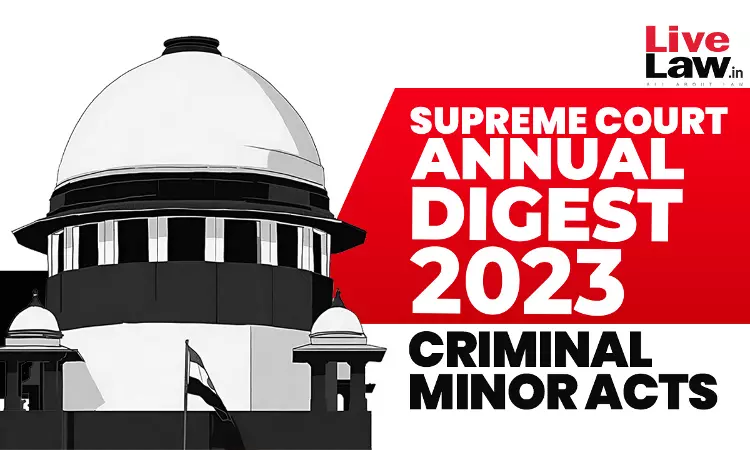- Home
- /
- Supreme court
- /
- Supreme Court Annual Digest 2023 -...
Supreme Court Annual Digest 2023 - Criminal Minor Acts
LIVELAW NEWS NETWORK
13 Feb 2024 2:53 PM IST
Abkari ActAbkari Act; Section 8 - The testimonies of official witnesses cannot be discarded simply because independent witnesses were not examined - the person receiving the information of the crime or detecting the occurrence thereof, can investigate the same. Questioning such an investigation on the basis of bias or such like factor, would depend on the facts and circumstances of each case....
Next Story



